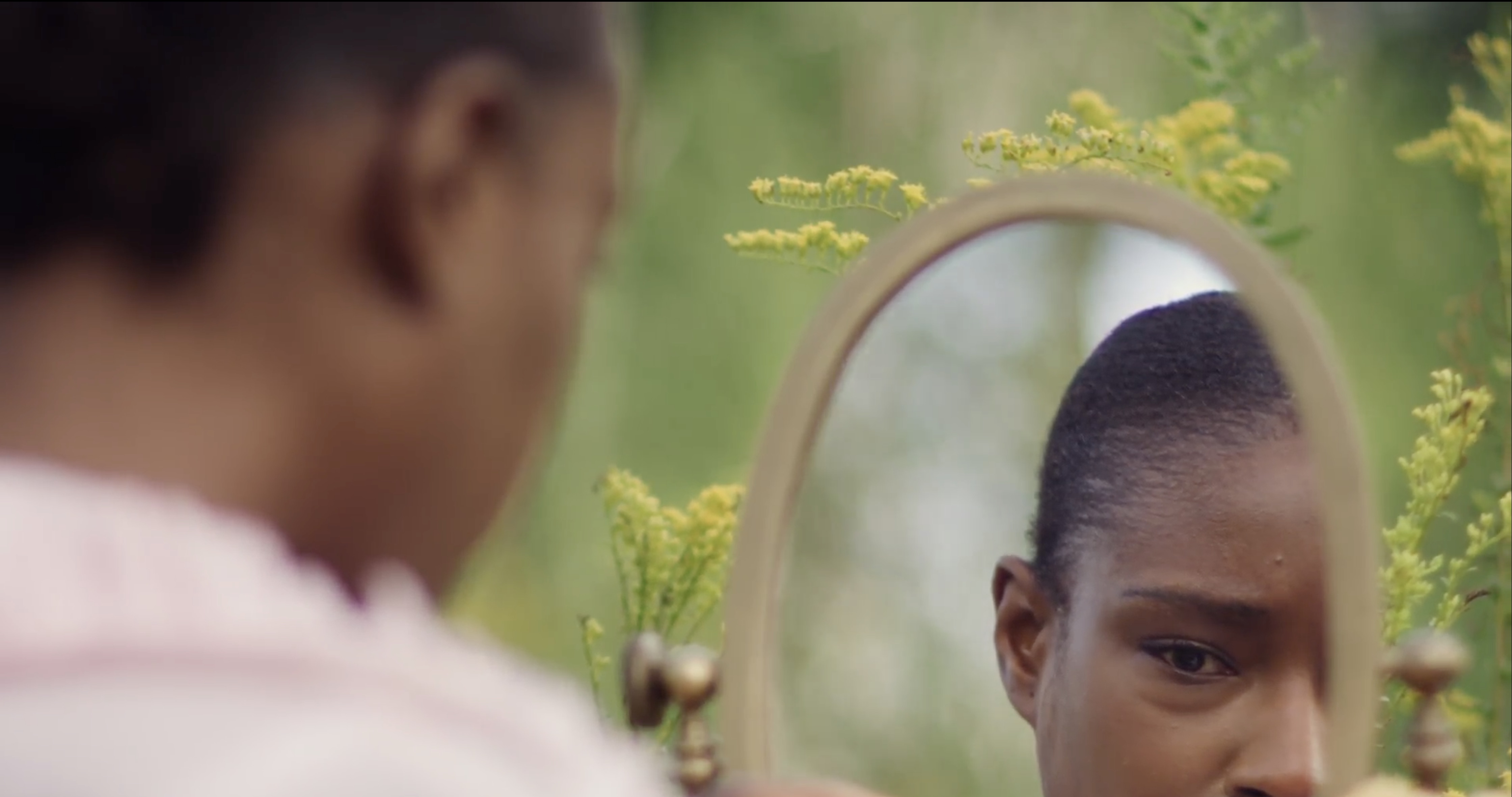Madeleine Hunt-Ehrlich
Madeleine Hunt-Ehrlich (USA) is a filmmaker and artist born in New York City in 1987. Her films, concerned with the inner worlds of Black women, are rooted in archival and field research, using abstraction as a mode of resistance in depicting subjects deprived of self-autonomy under the exploitative gaze of the colonial camera. Her films and installations, including A Gentleman’s War (2013), McKayla (2017), Spit on the Broom (2018), Outfox the Grave (2020), Too Bright to See (2023), and many others, have screened at numerous venues internationally, including the Guggenheim Museum, International Film Festival Rotterdam, Venice Biennale (2022), Berlinale, BlackStar Film Festival, Perez Museum, Toronto International Film Festival, New York Film Festival, Tate Modern, and the Whitney Museum of American Art. She was named one of Filmmaker Magazine’s 25 New Faces of Independent Cinema in 2020, and is the recipient of a 2023 Herb Alpert Award in Film, a 2022 Creative Capital Award, a 2019 Rema Hort Mann Award, and a 2014 Princess Grace Award in film. Her first feature, The Ballad of Suzanne Césaire, had its world premiere at the International Film Festival Rotterdam in 2024, with subsequent reviews appearing in The Film Stage, Variety, The Hollywood Reporter, The Art Newspaper, Hyperallergic, and other international journals. Conspiracy (2022), co-directed with artist Simone Leigh for the US Pavilion at the 2022 Venice Biennale, is a tribute to the manual labours of creation which closes with a gesture of contained Black feminist arson, forming a contact zone between the two artists’ respective practices of sculpture and filmmaking. The film screened at select venues in 2023, including at Doc Fortnight: MoMA’s Festival of International Nonfiction Film and Media and as part of Media City Film Festival’s 26th edition. Hunt-Ehrlich lives and works in Brooklyn with her family, where she also teaches as an assistant professor in the Media Studies department at City University of New York.




Too Bright to See, Madeleine Hunt-Ehrlich, USA, 16mm > digital, 27.5 min, 2023
Too Bright to See draws on Hunt-Ehrlich’s extensive research into the legacy of Suzanne Roussi-Césaire, a writer and anticolonial and feminist activist from Martinique who, along with her husband, Aimé Césaire, was at the forefront of the Négritude movement during the first half of the 20th century. Roussi-Césaire would also become an important Surrealist thinker, influencing the likes of painter Wifredo Lam and writer André Bretonh however, despite her critical contributions to Caribbean thought and Surrealist discourse, until recently much of her work was overlooked.
–Pérez Art Museum Miami

Footnote to the West, Madeleine Hunt-Ehrlich, USA , digital, 5 min, 2020
A dreamy fragment about the end of the world. A Black girl wanders into a Hollywood western and mourns for the dead.
These films are co-presented with Black Gold and Three Fold, Detroit.
Image credits: all artworks and stills courtesy of the artist © Madeleine Hunt-Ehrlich.
View next: Nour Ouayda, as part of Media City Film Festival 27th Edition: Spotlight Series